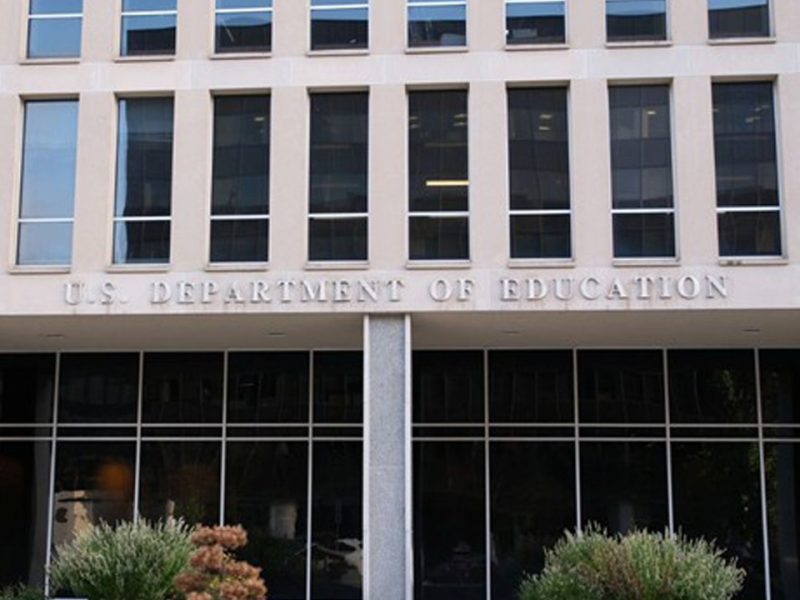
Orange school board’s labor dispute unresolved after 8 hours
Orlando Sentinel | By Leslie Postal | January 6, 2022
After hearing eight hours of arguments, budget details and pleas for better teacher pay, the Orange County School Board adjourned just after midnight Thursday without resolving its labor dispute with its teaching corps.
Several board members said they wanted to boost the district’s raise offer — $175 for most instructors — that the teachers union called “disrespectful.”
But they also said they understood why district administrators proposed tiny raises and then tried to offset them with thousands of dollars in one-time payments — from $4,000 to $6,000 for most teachers.
State budget cuts left district leaders with 3.5% less money this year even though they must educate more students, convincing them they could not afford more in ongoing costs. But helped by an infusion of federal COVID-19 relief money, they said they could afford one-time bonuses and three-year “longevity” supplements.
The board’s marathon meeting, shown live on both YouTube and Facebook, drew more than 800 viewers, though many dropped off as the meeting pushed into its final hour. The board is to reconvene Friday at 3:30 p.m.
During the meeting Wednesday, some board members said they agreed with the teachers union, which argued that one-time payments did not help teachers build long-term financial security. They said they feared morale was plummeting and an ongoing teacher shortage would get worse.
“We are going to suffer a loss of tremendous teacher talent at the end of this school year that we may not be able to recover from,” said board member Karen Castor Dentel, a teacher for Orange County Public Schools until her election to the board in 2018.
“Our most talented teachers are leaving,” she added. “We need to protect our teachers because they are at the core of our mission.”

Castor Dentel suggested the board provide a bigger cost of living increase to all employees than the $25 that was proposed and soon became a rallying cry for teachers who on social media proclaimed, “I am worth more than $25.” Several other board members sounded supportive, too, though they did not settle on a proposal.
They also said that while they wanted to find more money for teacher raises, the district’s reserves, or rainy day fund, could not be raided as much as the teachers union wanted.
The union’s pay proposal, including raises of about $3,000 for most teachers, would cost $60 million a year.
“I believe the district can do more. I’m not sure how much more,” Castor Dentel said.
The county’s teachers union and the district have been fighting since the summer over the district’s 2021 pay proposal. The fight started at the bargaining table, moved to an impasse hearing before a special magistrate and is now before the school board. The magistrate recommended the board stick with the district’s raise plan but agreed with the union that health insurance costs should not go up this year and that the supplements should be ongoing, not end after three years.
The magistrate’s report made both sides unhappy, and both rejected some of his recommendations. The board met to hear the reasons for those rejections and then to make a decision in the “public interest,” though at 12:15 a.m. it adjourned before hearing all the arguments or making a ruling.
School leaders said the board was meeting in a “quasi-judicial” role, but it is not an impartial judge. As state law requires, months ago it approved the school district’s $2.3 billion operating budget and set the parameters for salary negotiations with the teachers union.
Board members, who had a closed-door meeting before salary negotiations began, said they were upset then that they had so little available for teacher raises.
“We were appalled,” said board member Melissa Byrd. “It was literally like the worst meeting we ever had.”
The district’s proposal includes a $25 cost-of-living increase and then a raise of $150 for most teachers, meaning a yearly pay hike of $175, or a 0.4% increase for a teacher earning the new minimum salary of $47,500.
Gov. Ron DeSantis’ push to increase the base teaching salary to that $47,500, a target OCPS hit last year, meant most of the district’s state salary allocation had to go to maintain that, leaving little available for raises for more experienced teachers.
“I completely understand why raises are so much more valuable than a bonus,” said Chair Teresa Jacobs. “We need the state to give us recurring funds so that we can give the raises.”
Under the district’s proposal, all teachers also would get one-time supplements of $2,500 and, by using federal COVID-19 relief money, additional supplements would be provided for the next three years to further boost the pay of veteran teachers. Most teachers with 20 years experience, for example, would get payments of $4,675 from OCPS this year.
John Palmerini, the district’s attorney handling the labor dispute, noted that the magistrate recommended the board reject the union’s salary plan because it could be paid for only by cutting staff and programs.
Palmerini, reminding the board his wife is an OCPS teacher, said district leaders understand one-time payments aren’t as financially beneficial as raises but said they still help teachers pay their bills.
“It’s money they can utilize this year,” he said. “This is real money that has been put on the table.”
He also argued that in years past the district provided raises to teachers whenever it had the money and that last year it gave them pay hikes when no other employee group got raises.
Union leaders argued the district could boost salaries if it looked for other savings and did not insist on stashing so much money in its rainy day fund, though district leaders said a robust savings account helps it get better rates when it borrows money for its ongoing school construction program.
The district’s “offer is both disrespectful and unacceptable,” said Wendy Doromal, president of the Orange County Classroom Teachers Association, the teachers union.
Teachers worked in “heroic” ways throughout the pandemic and now face rising costs, leaving them essentially earning less, she said.
“The truth is educators, no matter how devoted, no matter how much they love their profession, can no longer afford to work for OCPS,” Doromal told the board.





